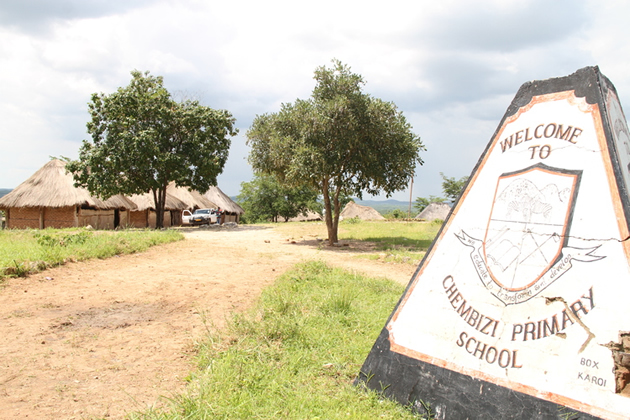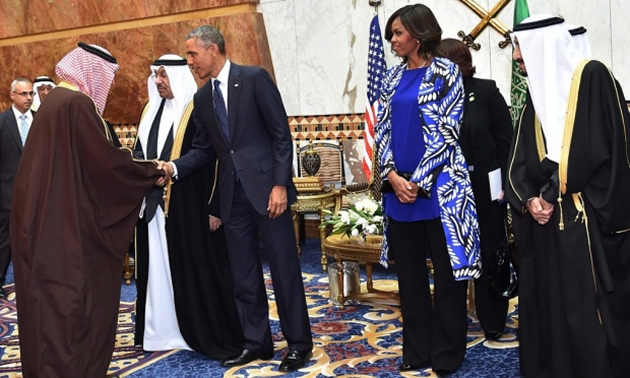The school time has forgotten


The sign post leading to the dilapidated structures at Chembizi Primary School in Hurungwe District, Mashonaland West
Sydney Kawadza Senior Features Writer
Tucked in one of the remotest parts of Hurungwe District, Chembizi Primary School in the Rengwe area is what one could describe as a place time and the authorities have forgotten.
Chembizi Primary School was set up as a satellite school to cover the Rengwe-Sanyati Bridge area in 2005 and 10 years down the line, pupils still sit on makeshift benches moulded from clay and even these rudimentary structures are crumbling.
The makeshift classroom blocks are a glaring danger to the children.
To imagine that 190 children are enrolled at this school poses a number of questions for the authorities and even the community leadership that sends their children to this hovel of a school.
However, the community is adamant that with enough support from Government and the donor community, Chembizi Primary School could be developed.
“The problem is that we have no resources. We try to grow tobacco and maize but the soils are not producing enough for us to assist in constructing proper structures for the school.
“We can barely afford school fees for the children and we are stuck. We really want our children to go to school and this is one way we can plan for their future,” said Ms Tarira, a local villager who was, however, uncomfortable to talk to strangers.
Another villager said the community feels neglected.
“We helped in constructing those blocks and our wish was to have proper structures for the school by now but as you can see 10 years later the temporary structures are on the verge of collapse and leaving our children in danger,” said another villager.
The school headmaster, Mr Hardlife Machaya, concurred with the parents that the lack of resources has severely affected development at the school.
Attempts to build a proper block of classrooms have also hit a snag and the project has been abandoned at concrete level.
“The villagers are poor and they are struggling to pay even their children’s school fees. We have about $70 in our coffers of which about $50 is from the third term of 2014.
“The community does not value educating their children because most of them are former farm workers while some are engaged in gold panning. If a child is sent home for failing to pay fees and visit a parent panning for gold along Sanyati River, the likelihood of him or her joining in the activity is quite high.”
Most children have also ditched classes during the dry season when the Sanyati River is flowing low and conducive for gold panning.
He added that there was need for the parents to take seriously the need for their children to get an education.
“We are pushing for the parents to appreciate the value of education otherwise all hope is lost for such communities as long as they do not appreciate education,” he said.
Mr Machaya’s deputy head, Mr Elmon Manjeru, also chipped in adding that the school needs building material especially for teachers’ houses.
“We have a staff complement of six and it is very difficult to attract teachers to these parts but if we had proper structures with electricity and water teachers would come without many qualms,” he said.
Mr Manjeru said the school was conveniently located near the main highway between Magunje and Nembudziya for easy access but more needs to be done for its development.
“The parents wait to sell their farm produce to pay fees and that would not work well for a school that needs to be developed like ours,” he said.
Hurungwe District Education Officer Mr Jason Dzveta acknowledged the challenges faced by satellite schools in his area.
“Most schools in the district have their own challenges but I feel we have three desperate cases in Hurungwe East constituency especially at Chembizi, Chisipiti and Zvengoma schools which are desperately in need of new structures,” he said.
Mr Dzveta said the communities, made up of farmers and gold panners, should be engaged to understand the need to take part in the development of their schools.
“There is need for community participation and we are engaging the people so that they value the need to have education for their children.”
He, however, applauded efforts by parents at Chembizi adding that their efforts need to be complemented.
“The villagers have contributed to the project at Chembizi Primary School and as you can see they have constructed the foundation to the classroom block. The challenge, however, is on resource mobilisation where the political and traditional leadership should take their own initiative to develop these facilities,” he said.
Mr Dzveta also acknowledged that it was difficult to engage qualified teachers to such schools.
“Teachers at the school are demotivated especially when they do not have proper accommodation and thieves break into their houses which are not secure.”
He added that the outlook is promising since Government’s initiatives to engage the community have taken a positive turn. We acknowledge that the communities are struggling but if every parent is conscientised on the need to educate their children we will have somewhere to start,” he said.
Mr Dzveta said there was need for donor and other partners to assist these schools to get rid of the temporary structures they are using.
“The schools received textbooks through the Education Transition Fund which was being spearheaded by the United Nations Children Fund but when we have infrastructure that exposes the children to dust and rains all Government efforts to improve our education levels would be in vain,” he said.
Primary and Secondary Education Minister Lazarus Dokora told journalists in Masvingo that Government had received funding from the Chinese government to improve infrastructure at 1 425 satellite schools in the country.
The money, according to Minister Dokora, was part of the US$23 million for the education and health sectors in Zimbabwe.
Minister Dokora said the money was targeted at satellite schools in resettlement areas adding that Government was open to private partners to improve infrastructure at the schools.
He said Government was open to concessionary loans on terms for financial assistance for infrastructure development at the satellite schools.
The minister also gave an example of the Sabina Mugabe High School which was developed by the Government in partnership with Mbada Diamonds, where on completion the school improved its enrolment from 190 to more 500 pupils a term.
Chembizi Primary School is part of the 37 primary schools in Hurungwe East constituency which, according to the Parliament of Zimbabwe has an enrolment of 15 051 pupils, with 53 percent being boys while girls who number close to 7 000 pupils make up 47 percent of the figures.
The Parliament of Zimbabwe also indicated that there are about 400 trained teachers at the schools for a pupil to teacher ration of 1:40 which is slightly less than the national average of 43:1.
All the 37 schools are owned by the Rural District Council.
Parliament also noted that Hurungwe East is a rural constituency with a slightly high poverty incidence.
However, although most of the households are male headed, it also said the families rely on mining and farming.
Parliament also recommends that activities should be directed towards poverty alleviation so as to improve the well being of the citizens especially school going children.
It was also recommended that secondary schools be built in the constituency while more trained teachers are engaged for the primary schools.
- Feedback: [email protected] or [email protected]









Comments